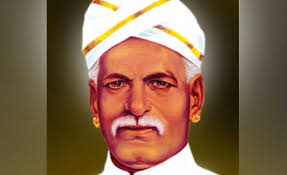Mahatma Ayyankali | 29 Aug 2020
Why in News
The Prime Minister of India paid tribute to social reformer Mahatma Ayyankali on his 157th birth anniversary.
Key Points
- Ayyankali (1863-1914), born in Kerala, was a leader of the lower castes and Dalits. With his efforts, Dalits got the freedom to walk on public roads, and Dalit children were allowed to join schools.
- He formed Sadhu Jana Paripalana Sangham (SJPS) to work for low castes.
- Efforts to organise the “depressed classes” and particularly the untouchable castes predated the nationalist movement, having begun in the second half of the nineteenth century.
- This was an initiative taken from both ends of the caste spectrum – by upper caste progressive reformers as well as by members of the lower castes such as Mahatma Jotiba Phule and Babasaheb Ambedkar in western India, Ayyankali, Sri Narayana Guru, Iyothee Das and Periyar (E.V. Ramaswamy Naickar) in the South.
Constitutional and Legal Provisions Against Discrimination of Dalits
- Social Safeguards:
- Article 17 of the constitution abolishes the practice of “untouchability” and punishes the enforcement of any disability arising out of the practice.
- Article 21 guarantees the right to life and liberty. The Supreme Court has interpreted this right to include the right to be free from degrading and inhuman treatment, the right to integrity and dignity of the person, and the right to speedy justice.
- When read with Article 39A on equal justice and free legal aid, Article 21 also encompasses the right to legal aid for those faced with imprisonment and those too poor to afford counsel.
- Article 23 prohibits traffic in human beings and other similar forms of forced labor.
- Article 24 provides that no child under the age of fourteen shall work in any factory or mine or engage in any hazardous employment.
- Economic Safeguards:
- Article 15(4) empowers the state to make any special provisions for the advancement of any socially and educationally backward classes of citizens, or for scheduled castes and scheduled tribes.
- Through Article 16(4), the state is empowered to make “any provision for the reservation of appointments or posts in favour of any backward class of citizens which, in the opinion of the State, is not adequately represented in the services under the State”.
- Political Safeguards: Article 330 provides reservations for seats for scheduled castes and scheduled tribes in the Lok Sabha (the House of the People), while Article 332 provides for reservations in the state legislative assemblies.
- Article 338 establishes the National Commission for Scheduled Castes.
- Related Directive Principles of State Policy:
- Article 43 calls on the state to secure to all workers, agricultural, industrial or otherwise, a living wage and conditions of work ensuring a decent standard of life.
- Article 45 charges that the state shall endeavor to provide free and compulsory education for all children until they reach the age of six.
- Article 46 states that the State shall promote with special care the educational and economic interests of the weaker sections of the people, and in particular, of the Scheduled Castes and the Scheduled Tribes, and shall protect them from social injustice and forms of exploitation
- The SC and the ST (Prevention of Atrocities) amendment Act, 2018.
